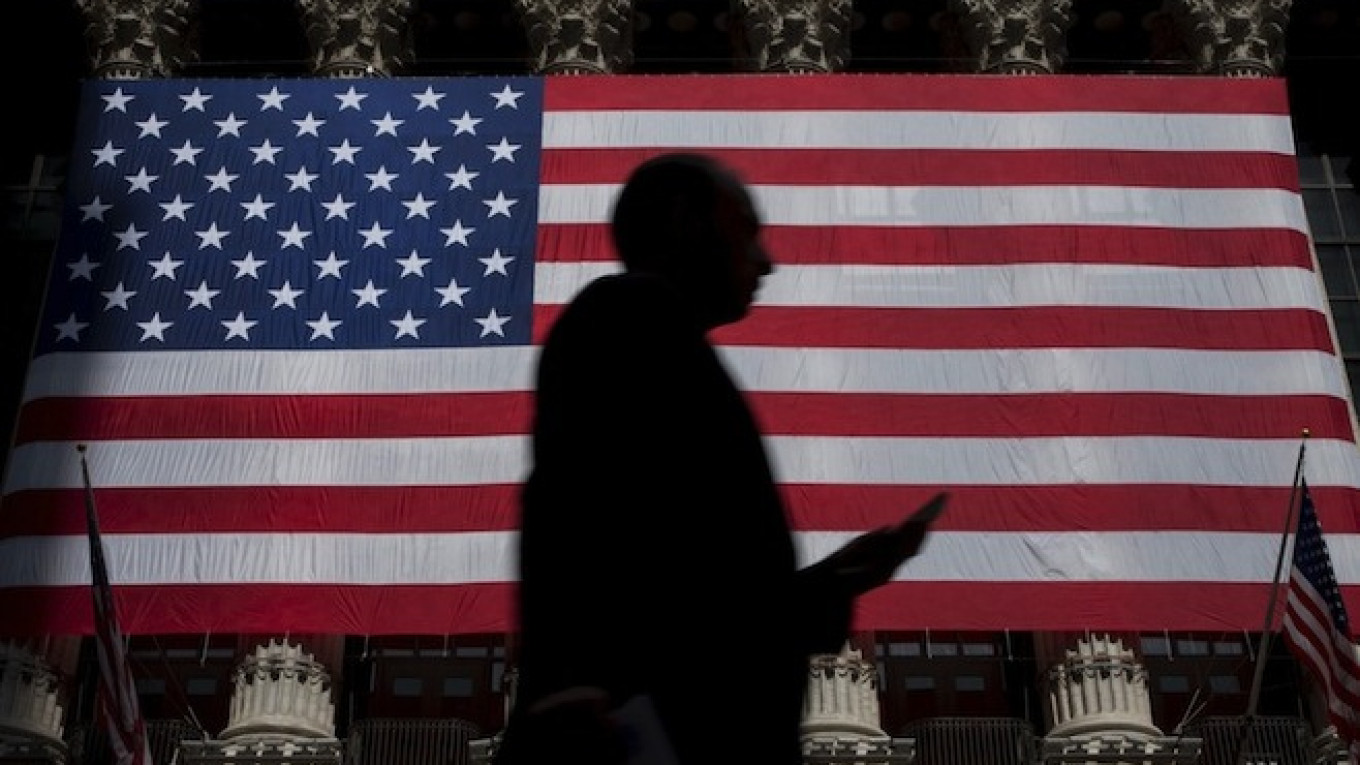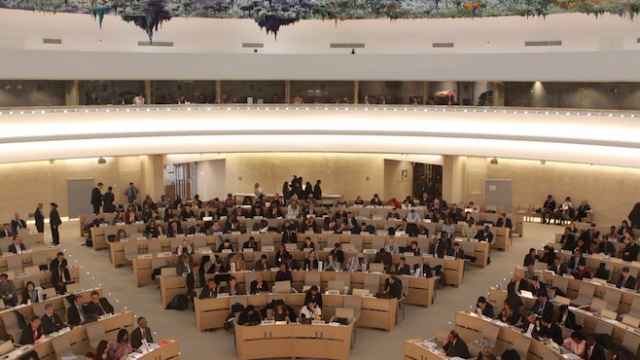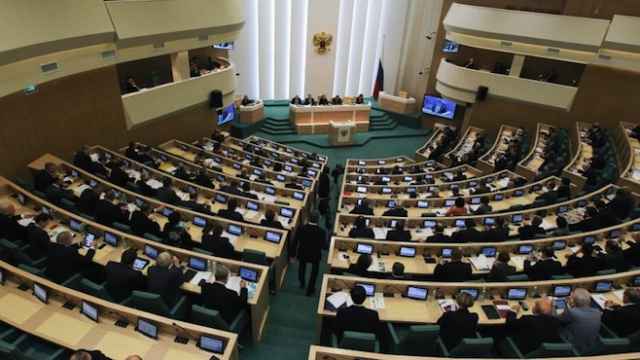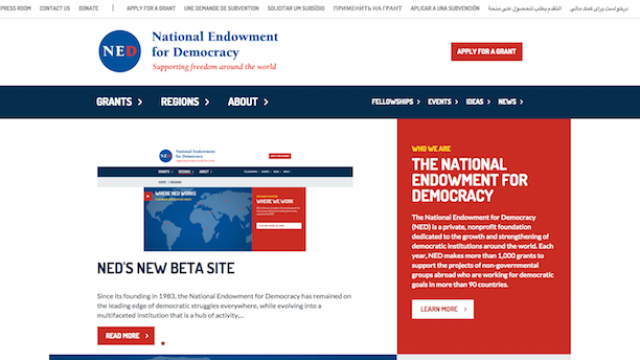The Kremlin on Wednesday defended a move to bar a U.S.-funded pro-democracy group from Russia after it was declared "undesirable," saying Russians could still get access to such organizations.
Russian prosecutors branded the National Endowment for Democracy, funded largely by U.S. Congress, "undesirable" on Tuesday under a law Moscow says boosts security but critics say stifles civil society under President Vladimir Putin.
Kremlin spokesman Dmitry Peskov told a conference call: "It would be wrong to say that citizens' rights are violated by banning this or that organization. Banning the activities of one or more organizations won't mean that citizens' access to democracy groups is limited."
Putin, at loggerheads with the West over Ukraine, has said he will not allow rights groups to be used to foment unrest in Russia. In 2012, Russia obliged groups that get foreign funding and engage in "political activity" to register as "foreign agents," a term widely seen as derogatory.
The move to bar NED is the first under legislation on "undesirable" groups which Kremlin critics say further tightens the screws on non-governmental organizations in Russia.
"The law on undesirable organizations is the latest in a series of highly restrictive laws that limit the freedom of Russian citizens," NED said in a statement on its website.
"This law, as well as its predecessors, contravenes Russia's own constitution as well as numerous international laws and treaties. The true intent of these laws is to intimidate and isolate Russian citizens."
Russian prosecutors said NED handed out $5.2 million to groups in Russia in 2013-14 and that it would outlawed after Russia's Justice Ministry puts it on a blacklist. It was not clear when that might happen.
The prosecutors said NED had used the groups it sponsored to cast doubt on the legitimacy of Russian election results, to organize "political actions" to influence the decisions of state authorities and discredit the armed forces.
Another U.S. rights group, the MacArthur Foundation, said last week it was closing its Moscow office after it was placed on a list of "undesirable" NGOs by the upper house of parliament.
A Message from The Moscow Times:
Dear readers,
We are facing unprecedented challenges. Russia's Prosecutor General's Office has designated The Moscow Times as an "undesirable" organization, criminalizing our work and putting our staff at risk of prosecution. This follows our earlier unjust labeling as a "foreign agent."
These actions are direct attempts to silence independent journalism in Russia. The authorities claim our work "discredits the decisions of the Russian leadership." We see things differently: we strive to provide accurate, unbiased reporting on Russia.
We, the journalists of The Moscow Times, refuse to be silenced. But to continue our work, we need your help.
Your support, no matter how small, makes a world of difference. If you can, please support us monthly starting from just $2. It's quick to set up, and every contribution makes a significant impact.
By supporting The Moscow Times, you're defending open, independent journalism in the face of repression. Thank you for standing with us.
Remind me later.






